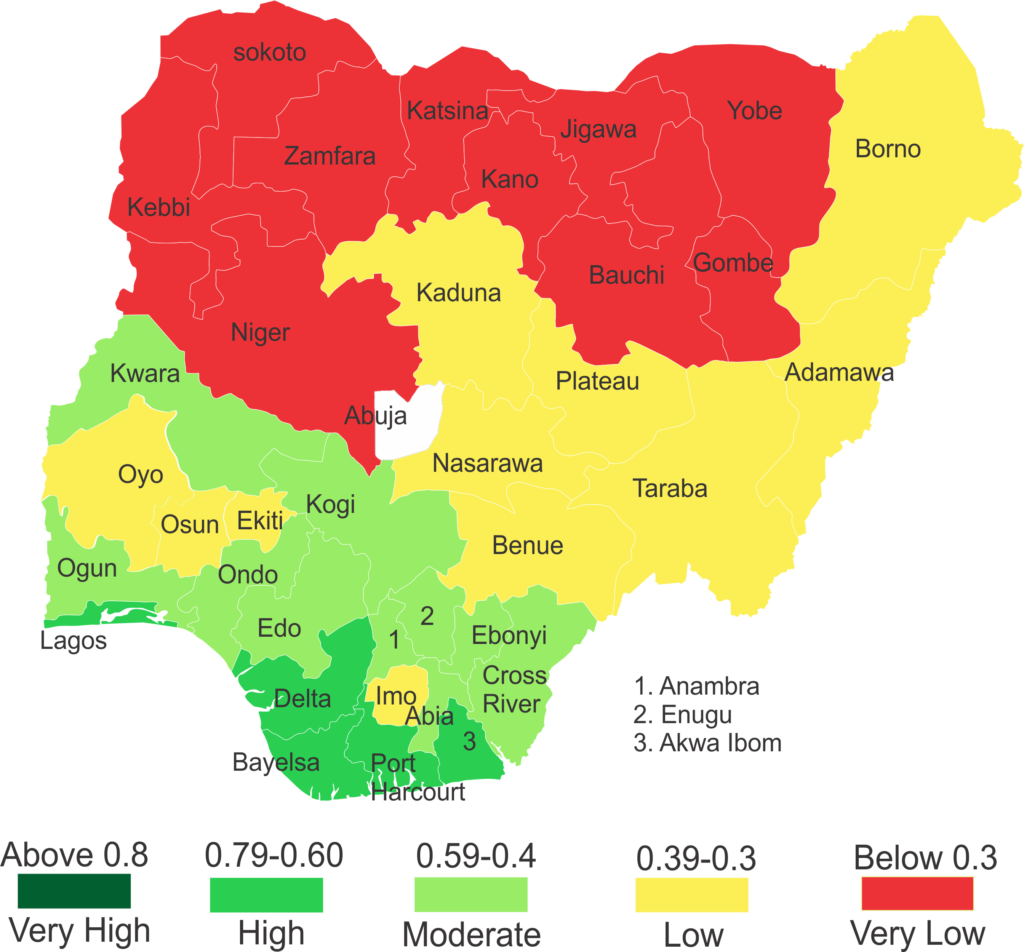This study develops a comparable Human Development Index for subnational government in Nigeria. While built on the UNDP approach, we extend the generic framework to address challenges at the subnational level such as comparable indicator, data unavailability, and estimation technique. The result shows a wide disparity across states in their human development, with states within the southern region recording more impressive performance. We further examine the key economic and political drivers of the observed variations across the state and found fiscal sustainability and geopolitical zoning as the key determinants.
Policy Brief & Alerts

September 14, 2018
Beyond Country-level Averages: Construction of Sub-National Human Development Index for the Nigerian States
This study develops a comparable Human Development Index for subnational government in Nigeria. While built on the UNDP approach, we extend the generic framework to address challenges at the subnational level such as comparable indicator, data unavailability, and estimation technique. The result shows a wide disparity across states in their human development, with states within […]
Read →
Related
Nigeria Economic Update (Issue 34)
Recently released report by the National Bureau of Statistics shows that Nigeria recorded remarkable Year-on-Year (YoY) and Quarter-over-Quarter (QoQ) increase in capital importation. Total capital importation stood at $1,792.3 million in 2017Q2, representing 72 percent YoY and 97 percent QoQ growths respectively. Disaggregated data points to portfolio investment as the dominant type of investment imported, with a value of $770.5 million, 43 percent of total capital importation. The increase in capital importation was driven by 145 percent QoQ surge in portfolio investment and a remarkable increase in capital imported through shares.


